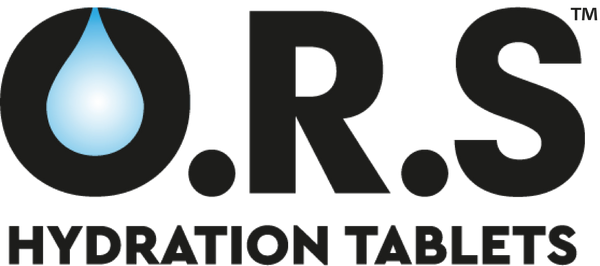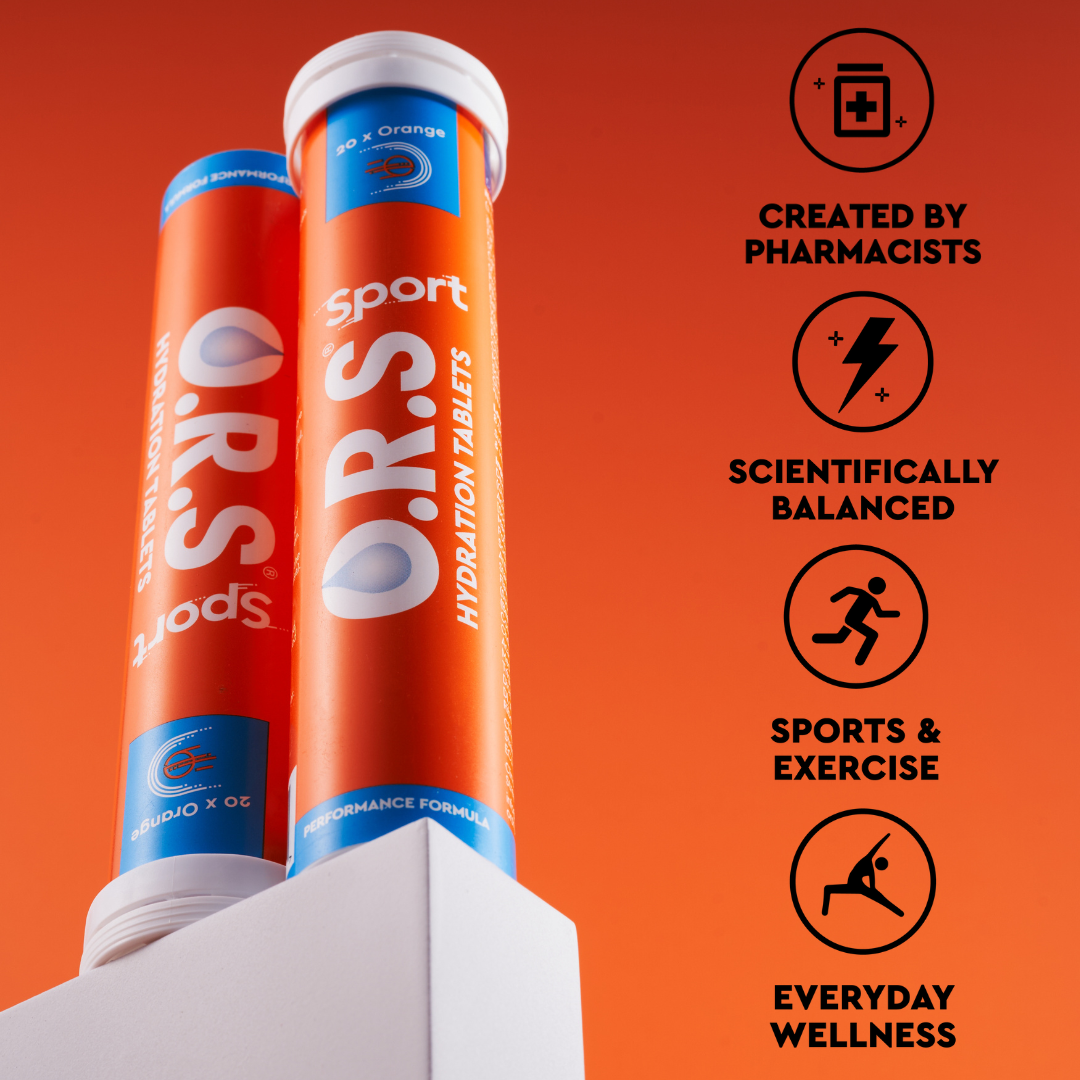
What Are Electrolytes & What Role Do They Play In The Body?
Share
If you’ve ever felt exhausted or dizzy out of all proportion to your activity levels, the culprit could be low electrolyte levels. These are minerals that are always present in the fluids in your body, but the levels can be depleted if you are dehydrated, for example from sweating more than usual, or having a stomach bug.
Here’s a look at the crucial role electrolytes play in the healthy functioning of the body, and the situations when healthcare professionals recommend taking an electrolyte tablet to correct a mineral imbalance.
What are electrolytes?
Electrolytes are minerals that carry an electrical charge, hence the name electrolyte. They are essential for a wide range of vital bodily functions, including regulating heartbeat, proper nerve and muscle function, and maintaining optimum fluid balance. The main electrolytes found in the human body include:
-
Sodium
-
Potassium
-
Chloride
-
Calcium
-
Magnesium
These electrolytes are carried around the body in fluids to enable them to reach the cells where they are needed. However, they can be lost through sweat, urine, and other excretions. If they are not replenished fast enough, you can start to feel the effects, including fatigue, muscle cramps, dizziness, headaches, and brain fog.
What are the key functions of electrolytes?
Here’s a look at the main roles electrolytes play in the body:
Regulating fluid balance: Sodium and chloride help the body to maintain the right amount of water inside and outside the cells.
That’s why drinking water alone is not enough to quickly restore fluid balance when we are dehydrated. In fact, drinking lots of water can actually slow the recovery process, because it dilutes the already low levels of sodium and chloride in the body.
Supporting muscle function: Potassium, calcium, and magnesium help the muscles, including the heart, to contract and relax properly. That’s why you might notice you are prone to muscle cramps or even heart flutters when you are dehydrated.
You may also notice that your heart is beating harder even when you are at rest. This is because dehydration thickens the blood and so the heart has to work more vigorously to pump blood to the vital organs.
Enabling nerve communication: Electrolytes transmit electrical signals that control the body’s reflexes and messaging between the brain and the body. That’s why sluggishness, confusion and brain fog are common symptoms of dehydration.
What are good sources of electrolytes?
Most of the time, we get an adequate amount of electrolytes from the food we eat and fluid intake. For example, sodium and chloride are found in salty foods such as cheese and cured meats, and also in fish and eggs. Potassium is present in certain fruits and vegetables, including bananas, apricots, spinach and potatoes.
Dairy products are the main source of calcium, while good sources of magnesium include beans, legumes, nuts and whole grains. You can also take oral rehydration salts to supplement your electrolyte intake.
When might you need extra electrolytes?
The body works hard to maintain a fine balance of electrolytes, but it can be disrupted by a number of factors. These include:
Chronic health problems: such as kidney disease, diabetes, and heart conditions. Some medications may also affect electrolyte balance.
Sweating: If you exercise intensely, particularly in a warm environment, you can lose between one to two litres of sweat per hour, along with key electrolytes such as sodium and potassium. Even if your activity levels are low, simply being in a hot environment means that you will sweat more as this is the body’s way of cooling down.
Stomach bugs: If you’ve had a bout of vomiting or diarrhoea, then this can lead to severe dehydration and electrolyte loss, particularly in young children or older adults.
Alcohol consumption: Alcohol is a diuretic, meaning that it makes you urinate more, and this can lead to dehydration and electrolyte depletion.
Fasting: We get around 20 per cent of our water intake from food, so if you are fasting you may be more likely to have low electrolyte levels, as the kidneys use more water and sodium reserves in the body to maintain function.
When to use electrolyte tablets
Health professionals recommend taking an electrolyte supplement after a bout of vomiting or diarrhoea, particularly in children. They are also useful for everyday situations such as after a tough workout or run, during heatwaves, or when your normal hydration routine is disrupted, such as during travel or attending events and festivals.
This will help you to stay energised, clear headed and able to make the most of your activities without unwanted side effects or a long recovery period.







